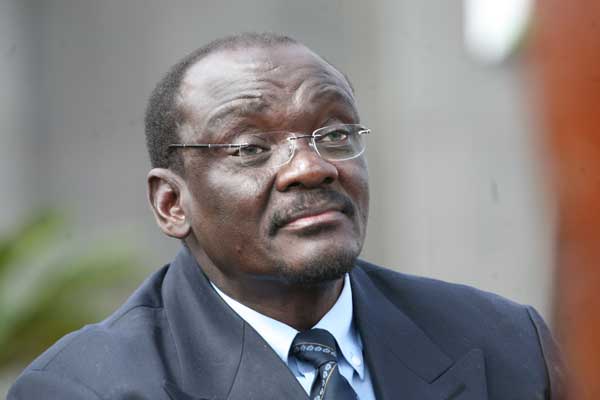
BY CHARLES LAITON
Vice-President Kembo Mohadi has approached the High Court seeking to stop his former wife from selling his property following a nasty divorce.
Tambudzani Mohadi, a Zanu PF senator, in October succefully obtained two writs of execution against the VP as she sought to recover $259 666 as part of their divorce settlement.
The VP, however, is arguing that the two writs of execution issued by the registrar of the High Court on October 14 were “grossly irregular, misleading and misrepresented the facts of the matter.”
His lawyer Tafadzwa Muvhami said they wanted the court orders declared null and void.
The writs of execution against Mohadi were obtained by Tambudzani who claimed that the VP had failed to comply with a consent paper agreement, which he signed and was registered as a court order by High Court judge Justice David Mangota on March 1, 2019.
Mohadi said Tambudzani had failed to interpret the terms of the consent paper.
“The respondent’s writs of execution dated October 14, 2019 against the applicant are grossly irregular in that; they are inconsistent with the court order for which they are issued under, they are misleading and misrepresented to the extent that they relate to a non-existent court order and they seek to create terms of the court order which does not exist at all,” Muvhami said in his founding affidavit.
- Chamisa under fire over US$120K donation
- Mavhunga puts DeMbare into Chibuku quarterfinals
- Pension funds bet on Cabora Bassa oilfields
- Councils defy govt fire tender directive
Keep Reading
“The two writs of execution are clearly misleading, misrepresenting facts and not consistent with the order of this court in HC8128/18, regulated by the consent paper which is now part of the court order.”
According to the court papers, Tambudzani had sought to attach Mohadi’s movable goods at lot 1 of Lot 10 Farm, Jompembe in Beitbridge.
Mohadi argued that the writs were confusing in that they sought to attach property and interest at the rate of 3% per annum from February 28, 2019, and yet the court order was only granted on March 1, 2019.










